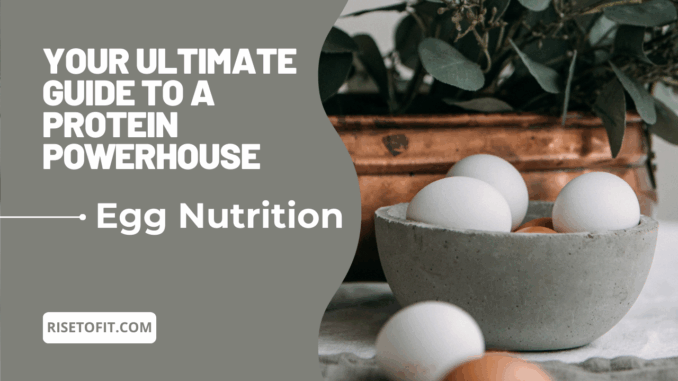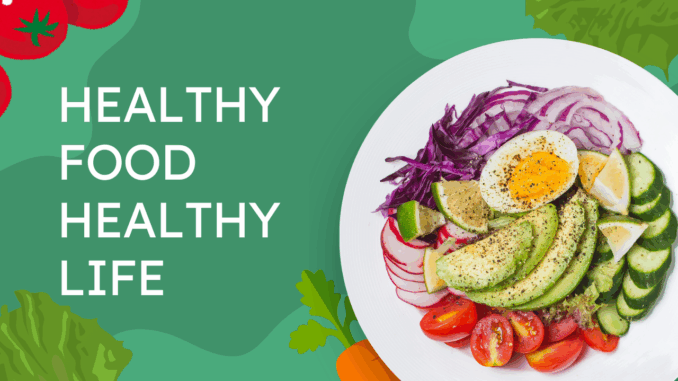
Egg Nutrition: Your Ultimate Guide to a Protein Powerhouse
For decades, eggs have been one of the most misunderstood foods. They’ve been celebrated as a breakfast staple and demonized for their cholesterol content. However, as nutritional science has evolved, one thing has become clear: eggs are a nutritional powerhouse. In a world of complex health trends and expensive “superfoods,” the humble egg stands out for its accessibility, versatility, and incredible nutrient profile.
This comprehensive guide will debunk common myths, reveal the surprising health benefits of eggs, and show you exactly why egg nutrition makes them an essential part of any balanced diet.
READ ALSO : Optimum Nutrition: Your Ultimate Guide to a Balanced Diet
Understanding the Nutritional Breakdown of an Egg

Before diving into the benefits, let’s look at what’s inside a standard large egg. A single egg contains approximately:
- Calories: 70-80
- Protein: 6 grams
- Fat: 5 grams
- Carbohydrates: Less than 1 gram
- Vitamins: Vitamin A, B2, B5, B12, D, E, and K
- Minerals: Phosphorus, Selenium, Calcium, and Zinc
- Antioxidants: Lutein and Zeaxanthin
The beauty of the egg lies in its balance. It’s a complete protein, meaning it contains all nine essential amino acids that your body cannot produce on its own. It’s also one of the few natural food sources of Vitamin D, which is crucial for bone health and immune function. The fat content is balanced, containing both healthy monounsaturated and polyunsaturated fats. The richness of egg nutrition is unparalleled for its size.
Debunking the Cholesterol Myth
For years, the biggest argument against eggs was their cholesterol content. Health professionals warned that eating too many eggs would raise blood cholesterol levels and increase the risk of heart disease. We now know this advice was largely misguided.
- Dietary Cholesterol vs. Blood Cholesterol: The body is incredibly smart. When you eat cholesterol from foods like eggs, your liver simply produces less of it to compensate. For the vast majority of people, dietary cholesterol has a minimal impact on blood cholesterol levels.
- Focus on Saturated and Trans Fats: Modern science has shown that it’s actually saturated and trans fats—found in processed foods, fatty meats, and butter—that have a much greater impact on raising “bad” LDL cholesterol levels. Eggs are relatively low in saturated fat, and they contain none of the harmful trans fats.
For most healthy individuals, moderate egg consumption (1-2 eggs per day) has no adverse effect on heart health. In fact, studies show that eating eggs can increase “good” HDL cholesterol, which helps remove cholesterol from arteries. This re-evaluation has restored the egg’s rightful place in a healthy diet and is a core part of understanding modern egg nutrition.
The Incredible Health Benefits of Eggs
Beyond being a complete protein source, the benefits of egg nutrition extend to virtually every system in the body.
1. Brain Health and Cognitive Function
Eggs are packed with choline, a vital nutrient that is often overlooked. Choline is essential for brain development, memory, and nerve function. It’s particularly important for pregnant women, as it plays a key role in fetal brain development. A single egg provides a significant portion of your daily choline needs.
2. Eye Health
The egg nutrition yolk is rich in two powerful antioxidants, lutein and zeaxanthin. These compounds are a major component of the macula in the human eye and are crucial for protecting your vision. They help filter out harmful high-energy blue light and reduce the risk of age-related macular degeneration and cataracts, two of the leading causes of vision loss. The power of egg nutrition for eye health is a standout benefit.
3. Weight Management
Eggs are an excellent food for weight loss and maintenance. The high protein and fat content in eggs helps you feel full and satisfied for longer, reducing the likelihood of overeating or snacking on unhealthy foods. A high-protein breakfast, like scrambled eggs, has been shown to reduce calorie intake throughout the rest of the day.
4. Bone and Muscle Strength
As a complete protein source, eggs are fundamental for muscle growth and repair. Whether you’re an athlete or simply looking to maintain strength as you age, protein is essential. Furthermore, eggs are one of the few natural dietary sources of Vitamin D, which is critical for calcium absorption and bone health.
The Versatility of Eggs: More Than Just Breakfast

Part of what makes egg nutrition so accessible is the incredible versatility of this food. Eggs can be a part of any meal, making it easy to incorporate them into your daily routine.
- Breakfast: The classic scrambled, fried, or poached egg provides a protein-rich start to the day. You can add vegetables, cheese, or lean meat to make it a complete, balanced meal.
- Lunch: A simple hard-boiled egg is a perfect, portable snack. You can also make a quick egg salad sandwich or top a fresh green salad with sliced hard-boiled eggs for added protein and nutrients.
- Dinner: Eggs can be the star of a quick dinner. Try a frittata or an omelet packed with leftover vegetables, or use a poached egg to top a warm bowl of grains and veggies.
- Snacks: Hard-boiled eggs are a fantastic, no-fuss snack that provides sustained energy between meals, keeping you full and focused.
Cooking Tips for Maximum Nutrient Retention
The way you cook an egg can slightly impact its nutritional value. While all cooking methods are fine, a few tips can help you get the most out of your egg nutrition.
- Go for a Runny Yolk: Cooking eggs too long can diminish the vitamins and antioxidants in the yolk. A soft-boiled or poached egg with a runny yolk retains the most nutrients.
- Cook Until the Whites Are Solid: Ensure the whites are fully cooked to prevent the risk of salmonella.
- Don’t Fear the Yolk: The yolk contains the majority of the vitamins, minerals, and healthy fats. Limiting yourself to just the whites means you are missing out on the vast majority of the egg nutrition benefits.
A Final Word on the Power of the Egg
The egg has proven itself to be a powerful, nutrient-dense food that deserves a place in a healthy diet. Its affordability, versatility, and impressive nutritional profile make it a standout choice for anyone looking to improve their health without resorting to complicated plans or expensive supplements.
By focusing on a balanced approach to egg nutrition, you can enjoy this delicious and powerful food while reaping the benefits of improved brain health, stronger muscles, better vision, and a more energetic body. So go ahead, enjoy your eggs—they’re one of the best things you can do for your health.

Leave a Reply